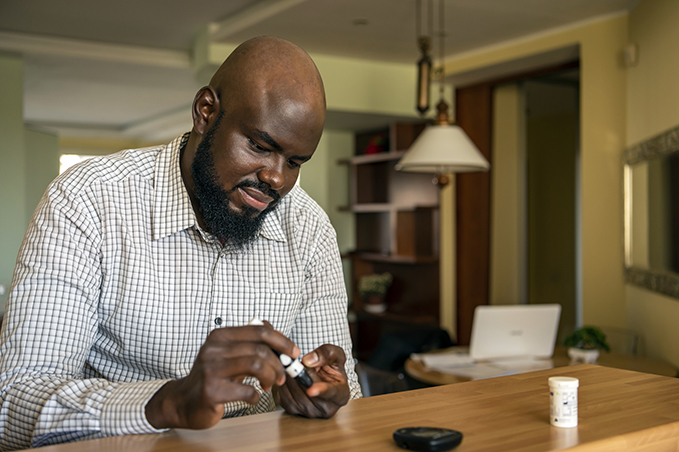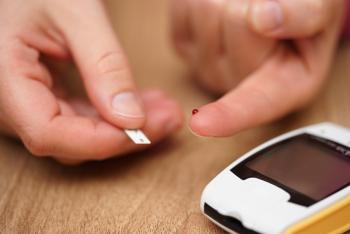Discover how high blood sugar impacts your body, from dental complications to kidney damage, and...
Read More

One of the most common medical conditions in the U.S., diabetes affects over 10 percent of Americans. Research has shown a higher prevalence of diabetes in men over women; however, men also are less likely to visit the doctor for a diagnosis or treatment.
“Reports have stated that men feel vulnerable and uncomfortable at medical exams,” said Jenine Vecchio, M.D., an endocrinologist at Inspira Medical Group Endocrinology Sicklerville. “They may be afraid of being diagnosed with a condition. Many men also feel as though they’re supposed to be strong and going to the doctor is perceived as a sign of weakness.”
Unfortunately, putting off medical exams often results in delayed diagnoses of conditions and diseases—including diabetes. So how can providers help their male patients keep up with healthy habits and preventive care?
It’s important to stay up-to-date on warning signs for diabetes and communicate these risk factors with your patients. Some of the most common symptoms of diabetes in men include:
If you’re concerned that your patient may be experiencing any of these symptoms as a result of diabetes, you should refer them to a specialist for testing.
Adopting a healthy lifestyle is the best way to prevent diabetes, especially for patients more at risk—those with a family history, a sedentary lifestyle or who are obese. Increasing exercise frequency and eating a healthy, balanced diet are two major ways to improve overall health. “Receiving interventional treatments or medicine can improve patients’ quality of life, but adopting a healthy lifestyle is something that works long-term to improve your patients overall health. This is something that we should always remember as providers,” said Dr. Vecchio.
Providers can also encourage patients who are already diabetic to make healthy lifestyle changes. “Diabetic patients should try and stay active however they’re able. A healthy diet is also important, and it doesn’t always mean giving up everything they love. Our diabetic nutrition team can help patients figure out which foods work for them and which they should stay away from, without jumping to extreme dietary restrictions,” said Dr. Vecchio.
Every patient is different and it’s especially important to communicate openly with male patients to establish a sense of trust. Have a discussion with your patients around the treatment options that are right for their specific health needs and lifestyle.
Inspira Health offers the newest treatments and methods for diabetes management, including sodium-glucose cotransporter (SGLT2) inhibitors, glucagon-like peptide (GLP-1) receptor protein treatments, continuous glucose monitors and insulin pumps. “We also offer diabetic education and nutrition counseling,” said Dr. Vecchio. “It’s important that male patients—and all patients—know they’re not alone in this. We’re here to guide them and help with any questions and concerns they may have about developing or managing diabetes.”
To refer a patient to Dr. Vecchio, call 856-885-2790.

Discover how high blood sugar impacts your body, from dental complications to kidney damage, and...
Read More
John Daddario, a lifelong resident of south Jersey was diagnosed with Type 2 diabetes so long ago he...
Read More
You may have seen preeclampsia, a potentially serious complication of pregnancy, in the news in the...
Read More
The material set forth in this site in no way seeks to diagnose or treat illness or to serve as a substitute for professional medical care. Please speak with your health care provider if you have a health concern or if you are considering adopting any exercise program or dietary guidelines. For permission to reprint any portion of this website or to be removed from a notification list, please contact us at (856) 537-6772